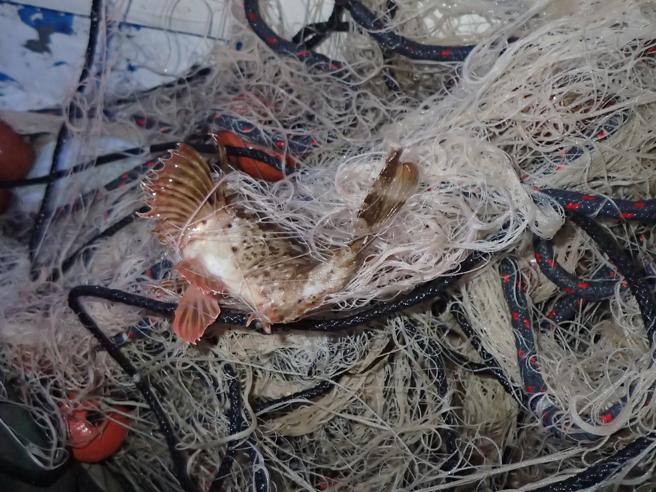The case of the Black Scorpionfish in the Mediterranean and its “worrying decline” (85% in the last ten years) is symbolic of the impending risks to biodiversity. The issue is raised by a study published in the international journal Fishes and conducted by scientist Francesco Tiralongo, a researcher at the Department of Biological, Geological and Environmental Sciences of the University of Catania. Tiralongo’s research, titled “Unraveling the Story of the Black Scorpionfish: Exploring Local Ecological Knowledge and the Exploitative History of a Marine Species,” delves into these delicate issues with scientific rigor. The number of specimens of the species has decreased by 85% in ten years, and each fish is on average more than 4 and a half centimeters smaller.
His study reveals a worrying decline in the species, both in fishing yields and in the sizes of the fish caught. The Black Scorpionfish (Scorpaena porcus) is a benthic and coastal fish of significant scientific and economic importance. The research highlights how the waters of the Mediterranean Sea are experiencing a silent crisis that threatens biodiversity and the balance of marine ecosystems. Unfortunately, the decline of the populations and the decrease in the average size affect not only this but several fish species of commercial and non-commercial interest.
The causes of these losses are multiple. The investigation is based on what Tiralongo calls the “valuable ecological knowledge of fishermen” (an important resource identified in the acronym Fek, Fishers Ecological Knowledge), which represents an essential source of information, especially in regions where historical data on the presence and abundance of species are limited or nonexistent. Analyzing the abundance and size of the Black Scorpionfish from 2001 to 2021 in the central Mediterranean Sea, the author of the research explains that there has been a clear reduction in both the abundance and size of this species. The reduction in abundance is even around 85% if we consider the last 10 years.
Furthermore, in the last 20 years, there has been a reduction in the average size of about 4.5 cm considering the total length of the animal. The same fishermen have attributed the decline of the Black Scorpionfish mainly to inadequately managed fishing activities. Strong concerns about the sustainability of fishing activities and the marine ecosystem are reported. It’s noted that in many areas of Sicily and Italy, the Black Scorpionfish has given way to the Madeira Scorpionfish, a species with thermophilic preferences that may have benefited from warmer waters and proliferated in recent years.
The crucial importance of local ecological knowledge in the context of scientific research and in the evaluation and management of biological resources is emphasized. These often-neglected data represent a fundamental resource for understanding marine dynamics and identifying appropriate conservation strategies. The scientific community now faces the need to address the causes of this rapid decline and develop innovative management strategies that go beyond traditional approaches to fishery management. The fishermen themselves have emphasized the urgency of comprehensive strategies that take into account not only sustainable fishing practices but also the need to preserve associated marine ecosystems.
The decline of the Black Scorpionfish in the Mediterranean thus sounds the alarm for the sustainability of fishing activities and the fragile balance of marine ecosystems. Immediate actions are needed to safeguard the species and ensure the long-term health of the Mediterranean Sea and its populations.
